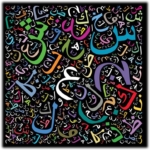As the Arabic language and culture have expanded internationally over the centuries, they have become a source of fascination and interest for many people, with some saying it is the world’s most beautiful language. |
Arabic, a Semitic language that is thousands of years old, is known as the one and only language of the Quran and the official language of Islamic countries. |
But, the sphere of influence enjoyed by this language is actually much larger. Islamic civilization has crossed every border and has become part of every culture on the planet. |
Arabic saw a rapid expansion during the Middle Ages and its heritage has extended well beyond Islam into the arts, Arabic literature (the writings of Avicenna, Arabic poetry, etc.), science, cuisine, traditions, communication, and more. |
Learning Arabic in a global society is important for the following groups: |
Native speakers of Arabic
|
Ex-patriot members of the Arabic diaspora across the globe (40 million people).
|
People from other cultures
|
As you are undoubtedly aware, in Arabic there is a difference between the spoken and the written language. |
Spoken Arabic is made up of different Arabic dialects. This means that Moroccan Arabic is different to Egyptian Arabic, and that of Syria differs from that of Qatar or Iraq. |
In other words, each of the Arabic-speaking countries of the Middle East and North Africa speaks a slightly different version of Arabic, with different words, phrases and colloquial expressions. |
When it comes to written Arabic, the picture is much more straightforward. The dominant form of written Arabic is Modern Standard Arabic (Msa), which is generally what any Arabic course will focus on as it is the form of Arabic which is used internationally. |
There is another version; classical Arabic. Classical Arabic is what is used in the Holy book of Islam, the Quran. |
The good news is that Msa and classical Arabic aren’t too dissimilar, and many native speakers use them almost interchangeably. |
So given that classical Arabic is the language used in the Quran, it is not difficult to see that learning Arabic and the Muslim world go hand in hand. |
|
“The language Allah chose is the Arabic language. He sent his precious book (the Quran) written in Arabic, the language of the last prophet. For this reason, it is the duty of everyone to learn Arabic.” |
|
Arabic was chosen by Allah, and the Muslim holy scripture is written entirely in Arabic. |
Therefore, every Muslim must learn to read and speak Arabic, the language of the prophet, in order to be able to understand and interpret the word of Allah through prayer and reading the Quran. |
|
Learning Arabic in order to understand the Quran is a vital part of Islamic instruction |
Because Arabic is considered the authentic language and THE language of the prophet, it is vital that every Muslim learn to speak Arabic in order to understand the Quran. |
Courses in Modern standard Arabic (Msa) and Quranic Arabic (classical literary Arabic) train students in the study of the Quran as well as Arabic grammar, vocabulary, and even Arabic culture. |
Speaking Arabic is slightly more complicated because each country has a different dialect meaning that Moroccan Arabic is different from the Iraqi and Algerian versions. |
So when learning Arabic online, make sure your teacher speaks the right dialect. |
But the written language is a lot more straightforward as it is common across the Arab world, and in short, it’s everything you need to practice Islam! |
There is so much that we don’t know about Arabic, and learners will explore the language, including the alphabet’s four vowels (A, E, I, and U) and 24 consonants. Did you know that you can spell a verb and several adjectives using only three consonants? |
Studying the Quran Is a Pillar of Islamic Culture. |
The holy book contains 6000 difficult-to-pronounce verses. Interpreting the Quran has become a veritable science. Muslim intellectuals and scholars seek a critical explanation and interpretation of the Quran. |
The art of correctly reciting the Quran, and chanting prayers, is known as the tajwid. The term is derived from the root j-w-d meaning “to make well, make better, improve.” |
The greatest challenge for a practicing Muslim is reading the Quran. The holy scripture is so complex that many Muslims find it difficult to recite and comprehend. |
Courses in Quranic Arabic and reading the Quran are required if believers wish to learn the rules of tajwid. |
|


